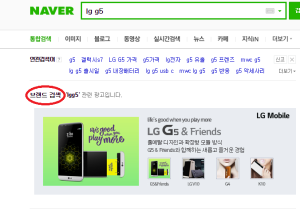How are business negotiations done in Korea? And how are they different from China, Japan or the USA? How to conduct yourself during meetings to maximize value? We read 5 (scientific and practical) studies about business negotiations in Korea. Below you can first find the 9 key points and below that a more elaborate summary of the studies.
Key points
- Make sure to match the rank of your negotiators with the rank of your partner’s negotiators. This means sending people of similar or equal status to the negotiation.
- Company profit is the main concern of the negotiators.
- Informal interactions and non-verbal clues are important.
- A meeting between Americans and Koreans went wrong when a planned chair-throwing incident by the Koreans overwhelmed the unprepared Americans, leading to the Americans conceding to many demands.
- Korean negotiators often use extreme openings to gauge real values, so counter with firm, realistic offers, avoid appearing overly aggressive, and stay professional even if emotions run high to maintain a constructive negotiation.
- Korean business culture is conservative with a strong work ethic, values harmony and structure over innovation.
- Korean business features aggressive negotiations where frankness and non-verbal communication, like silence and subtle emotional cues, play crucial roles.
- In Korea “saving face” is vital for maintaining reputation and social standing.
- Showing anger in negotiations is most effective through voice and video, leading to greater concessions but harming relationships, with the way anger is shown being more impactful than the intensity of the anger itself.
1. Korea vs China
Below are the Korean characteristics of negotiations in Korea.
- Good preparation will be done in the pre-negotiation phase.
- Pay attention to hierarchy. Send the negotiators with similar or equal rank to match with your partner.
- Company profit is the main concern of the negotiators.
- Afraid of risk, prefer written regulation and rules.
- Nearly only men are engaged in the business field, male and female have unequal rights in society.
- Compared with its neighbors China and Japan, Korea is more intense in nationalism, especially for F&B products, they prefer “Made in Korea”.
- Prefer to grasp answers from informal interactions and non-verbal clues.
Below are 3 reference charts of cultural differences and similarities between Korea and China:





Source: “A Comparison of Business Negotiation Behavior between Korea and China” by Meihong Sun.
2. Throwing chairs: how Americans were fooled by Koreans
- Sometimes, negotiations go wrong. Example: a meeting between Americans and Koreans, where the Americans lost out on good opportunities.
- The Flying Chair Incident: In a meeting, a Korean negotiator threw a chair to shock the Americans. This was planned to make the Americans feel scared and confused.
- Different Styles: The Koreans had a well-prepared team with people who knew a lot about American culture. The Americans were tired and not as prepared for the cultural differences.
- Outcome: The Americans ended up agreeing to many of the Koreans’ demands because they were overwhelmed. The chair-throwing was a trick that worked well for the Koreans.
- Lesson: The Americans didn’t understand how to deal with cultural differences and didn’t prepare well enough. Good negotiation is about finding creative solutions together, not just winning.
Source: https://www.globalnegotiationbook.com/negotiating-excerpt.php
3. Negotiating International Business – South Korea
This section is an excerpt from the 2017 edition of the book “Negotiating International Business – The Negotiator’s Reference Guide to 50 Countries Around the World” by Lothar Katz.
Korean negotiators regularly use extreme openings, hoping they can force you to reveal what you consider the real value of the items being negotiated. They do not view them as unfriendly acts as other Asians may. Counter the approach by firmly pointing out that you expect a realistic offer. Making extreme opening offers yourself may prove beneficial as it could surprise your counterparts and trigger a reaction. Be cautious not to appear overly aggressive, though. Threats and warnings may be used on both sides but should be subtle. In another tactical move, Koreans may get very emotional and show strong anger. Remaining constructive and professional usually helps refocus the negotiation. Threatened and actual walkouts should be avoided since they are too confrontational and may cause loss of face. Lastly, refrain from showing outright aggressive behavior even if you may feel that you are only reciprocating. It could prove very detrimental to your negotiation.
Source: http://www.leadershipcrossroads.com/search.asp?QUERY=korea&Submit=&ACTION=SEARCH
4. International business negotiations from Philips
The Korean business culture tends to be conservative and have a strong work ethic. Generally, harmony and structure are emphasized over innovation and experimentation. Negotiations can be very aggressive in tone. Koreans can be very frank and quick to express anger and frustration. You will have to be alert to subtleties in conversation to help discern the sincerity of the response (Philips Intranet).
Korean have learned to obtain their objectives by working long, efficient and to compete against overwhelming odds (Chloe & Pitman 1993). “Saving face” is an important concept to understand and in South Korean business culture, a person’s reputation and social standing rests on this concept (Philips Intranet). When a Korean smile or laugh they are often ashamed, embarrassed, feel fear, anger or surprise. The Koreans place big value on non-verbal communication and consider a persons inability to read feelings as a lack of sensitivity. A period of silence is a natural and expected form of non-verbal communication (Asia source).
Source: “International business negotiations, Factors that influence the negotiation in head office subsidiary relationship in Japan and Korea, A case study of Philips” by Daniella Fjellstrom (PDF)
5. Anger Expression in Negotiation: The Effects of Communication Channels and Anger Intensity
This Korean research looks at how showing anger affects negotiations and how this changes depending on the way anger is shown. They used four methods to show anger: text, emoticons, voice, and video. The study found that showing anger through voice and video has a stronger effect on making Korean people give in more during negotiations, compared to text or emoticons.
In the first part of the study, they discovered that people gave in more and felt less happy and less willing to negotiate again when they saw or heard anger through richer channels like voice and video. These richer channels show more non-verbal cues, like tone and facial expressions, which make the anger more intense.
The second part of the study showed that the intensity of anger alone, when shown through video, didn’t change the results much. This means that how anger is shown (the channel) is more important than how intense the anger is.
Overall, the study confirmed that showing anger can help in getting better deals but can harm relationships. Voice and video were the most powerful ways to show anger and get people to give in. However, more research is needed to understand why voice is the most effective and to explore other theories.
Source: https://www.ncbi.nlm.nih.gov/pmc/articles/PMC9201715/
Further reading
Business etiquette, meetings and gifts https://punchkorea.com/business-etiquette-korea/
Dress code https://punchkorea.com/korean-office-attire/
Korean business culture: https://punchkorea.com/korean-business-culture/







3 Responses